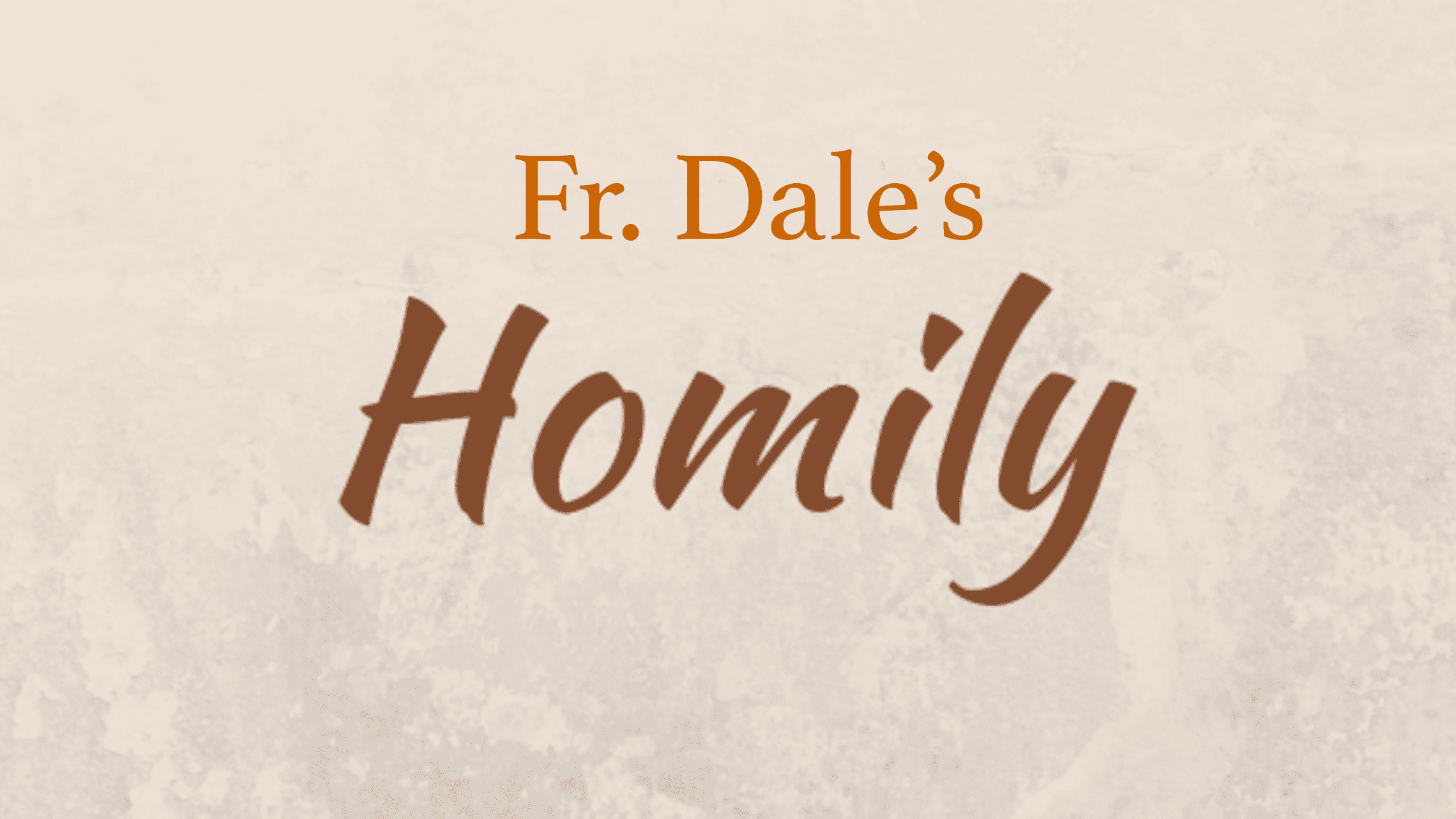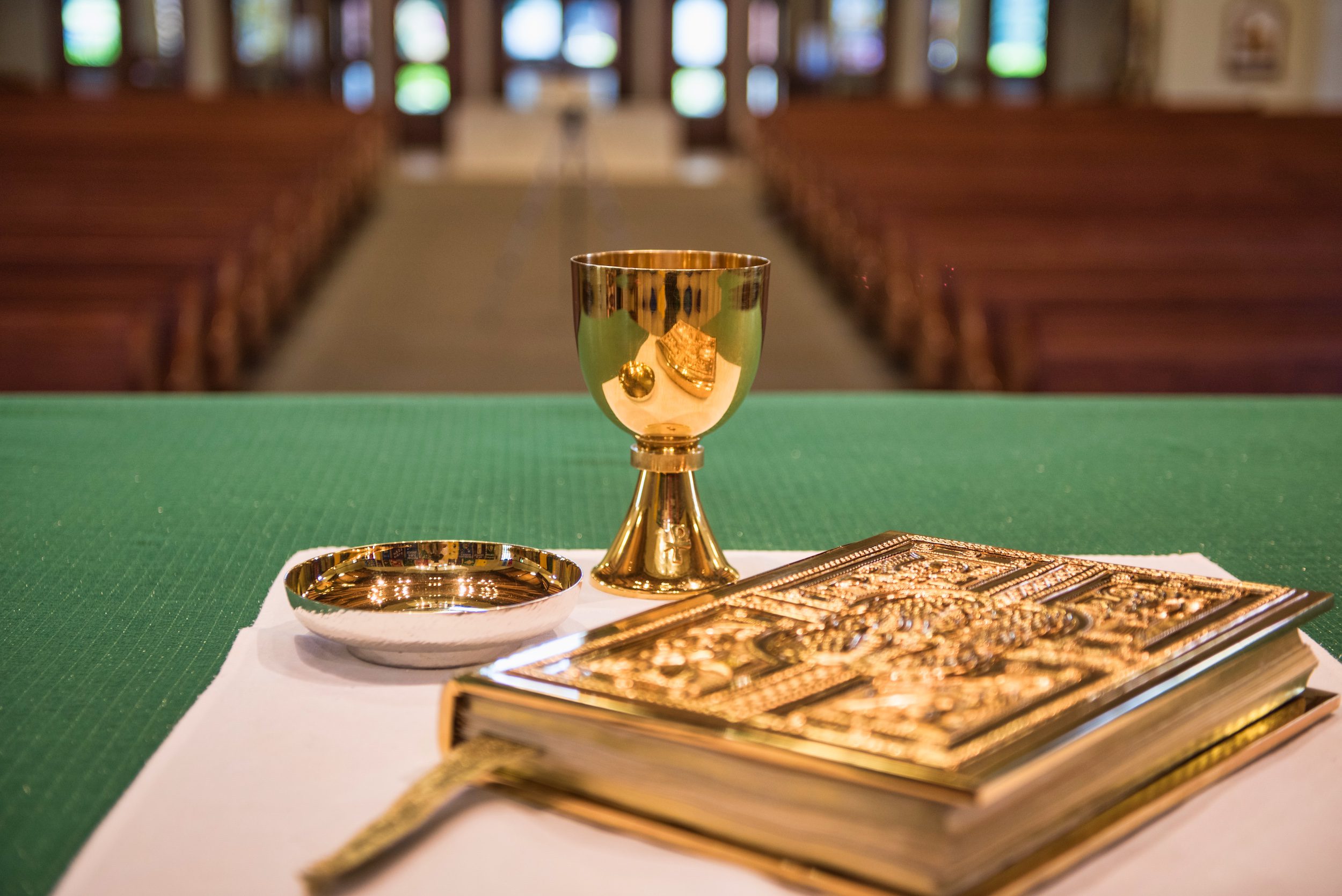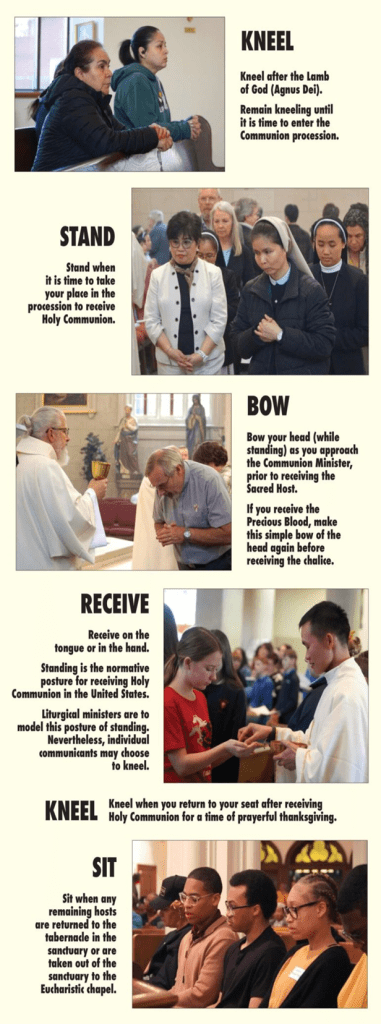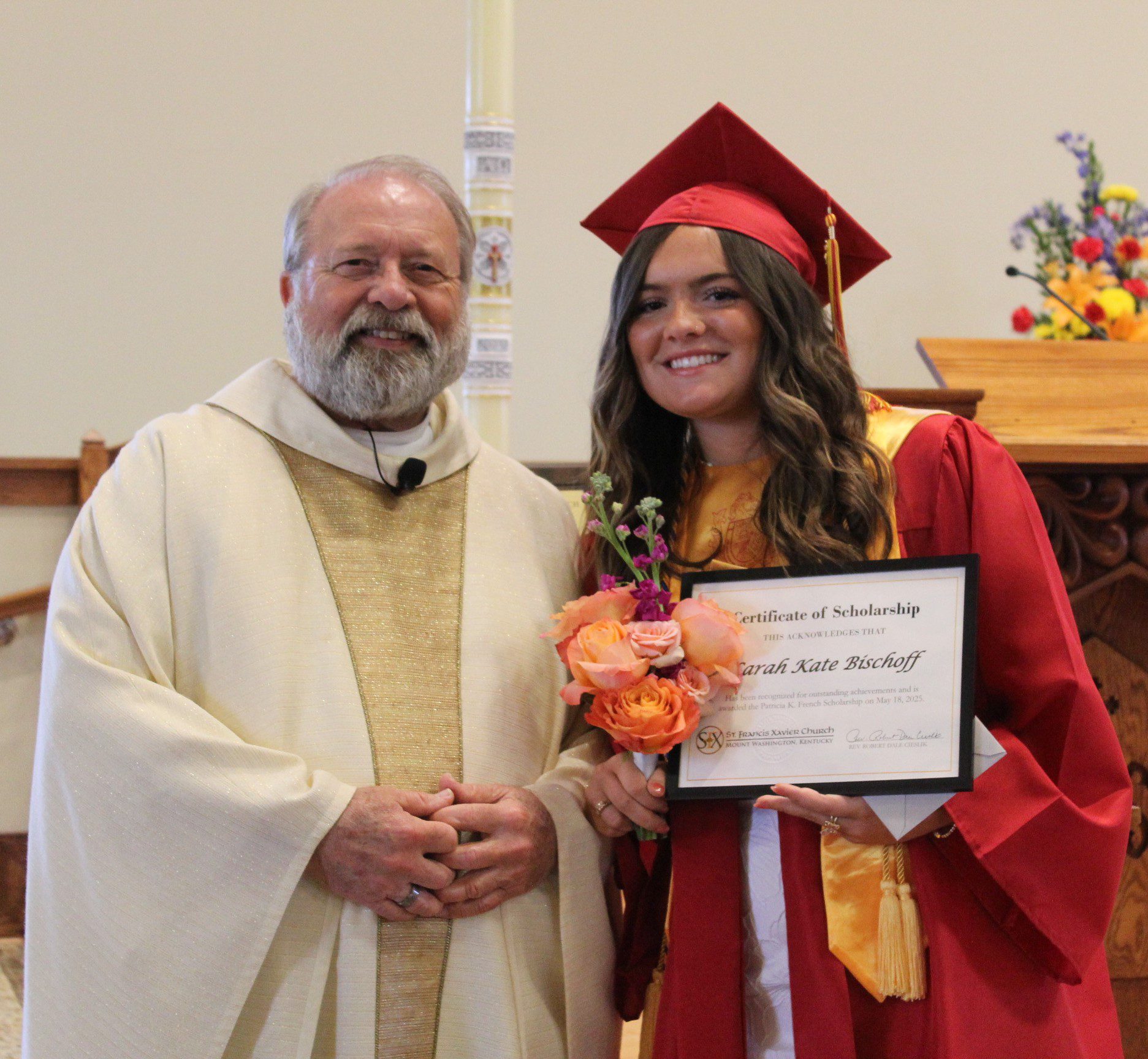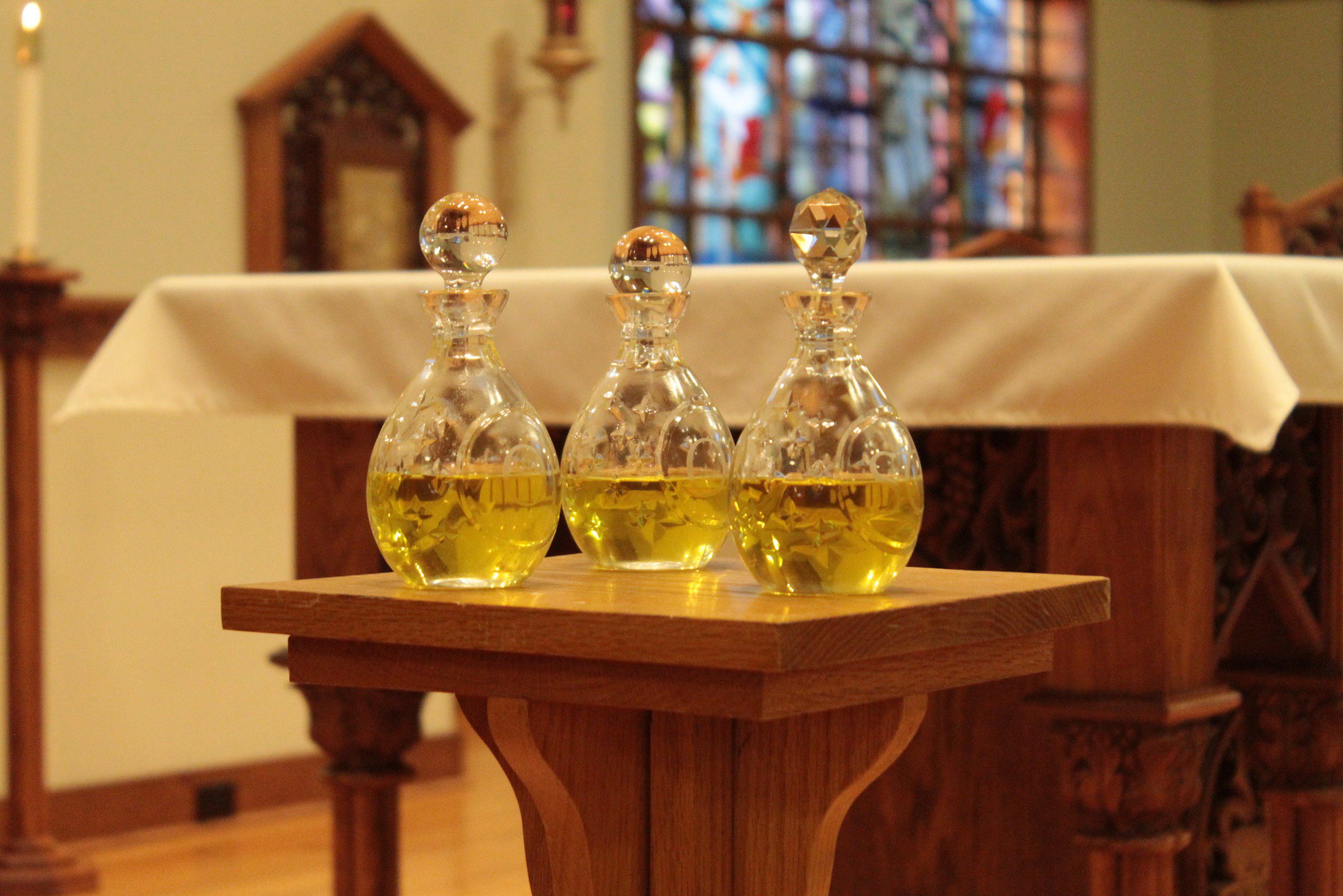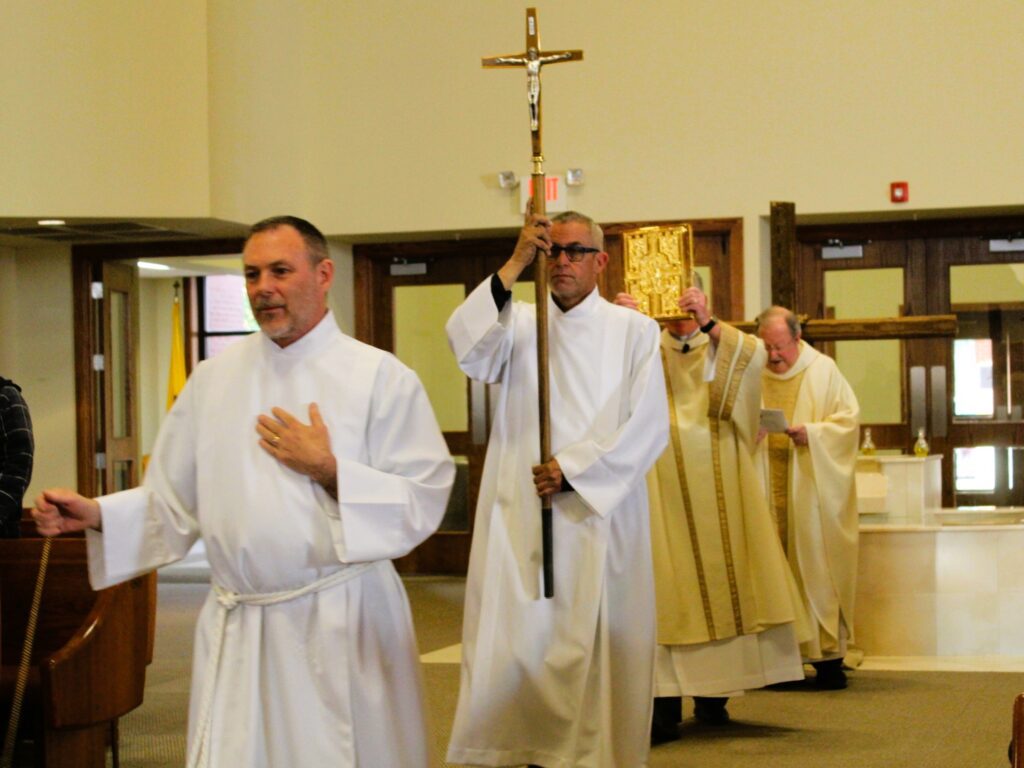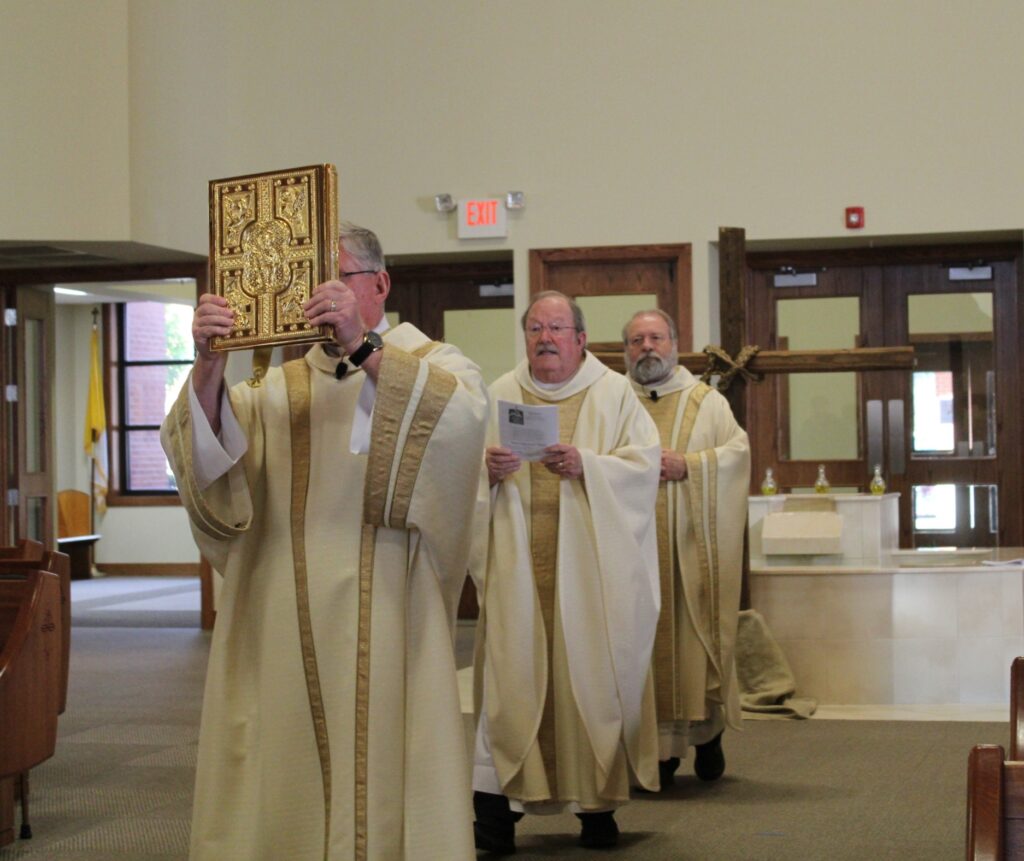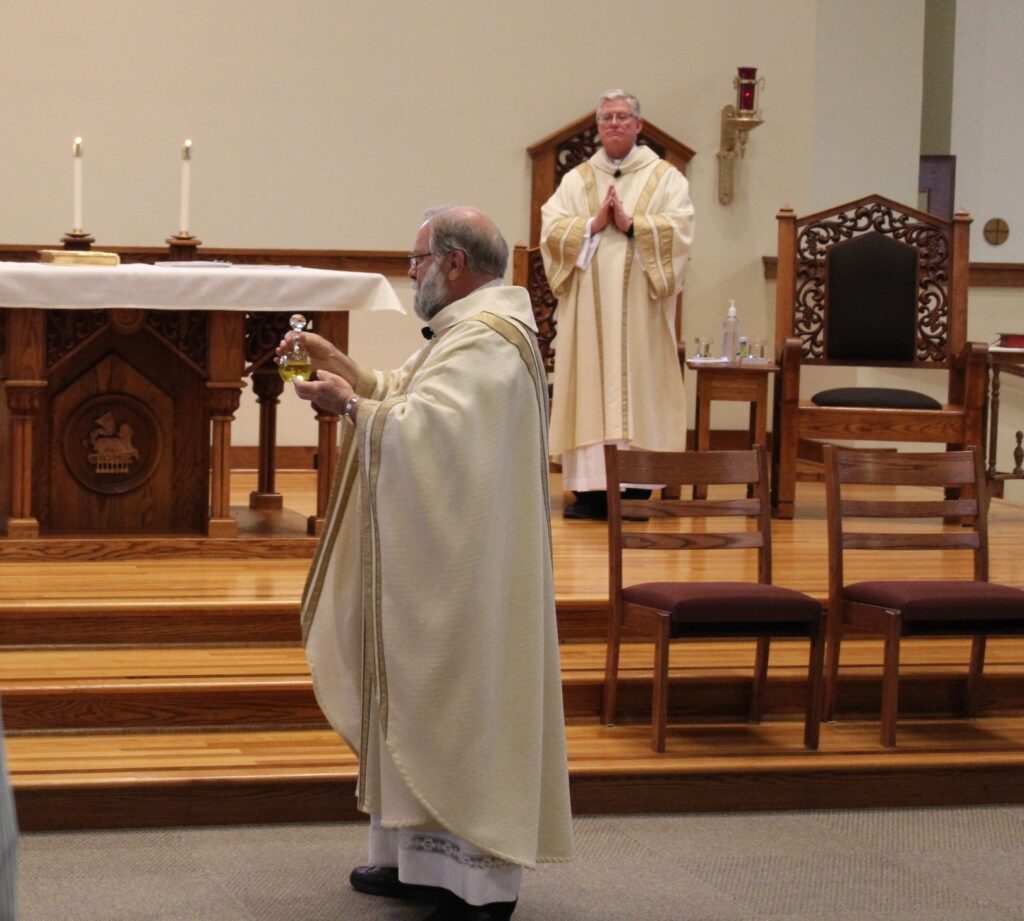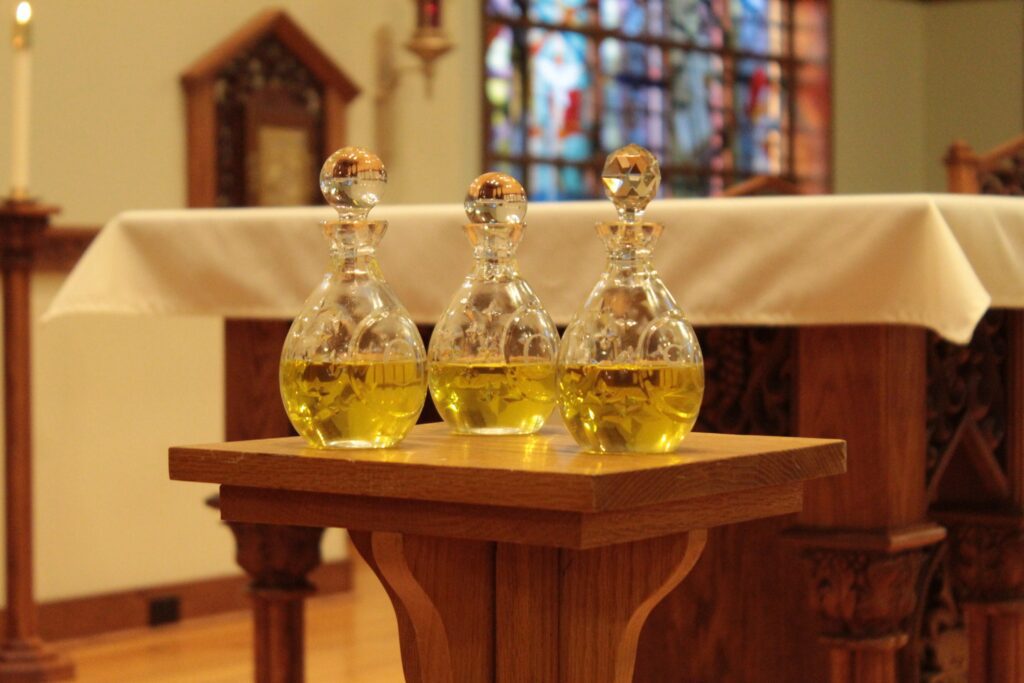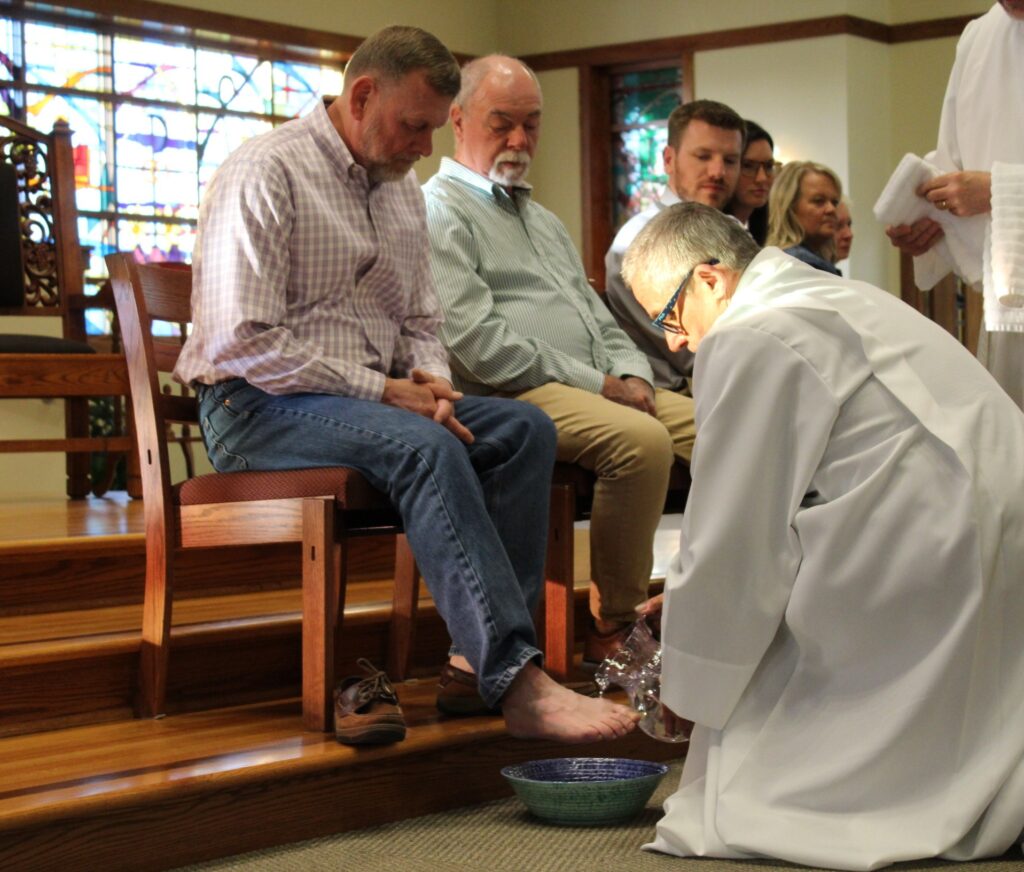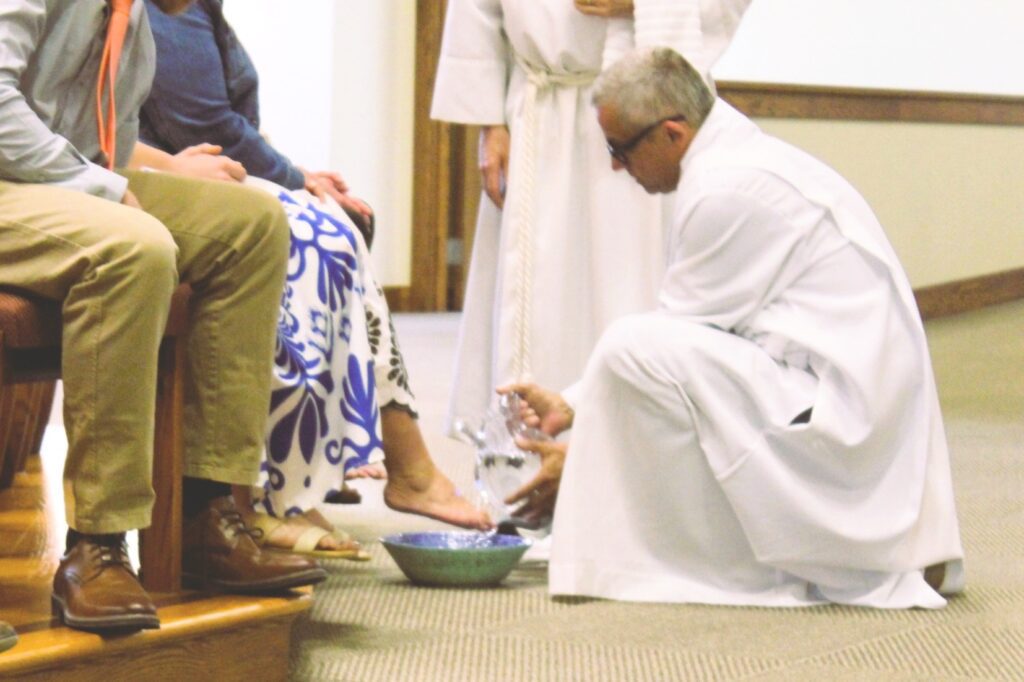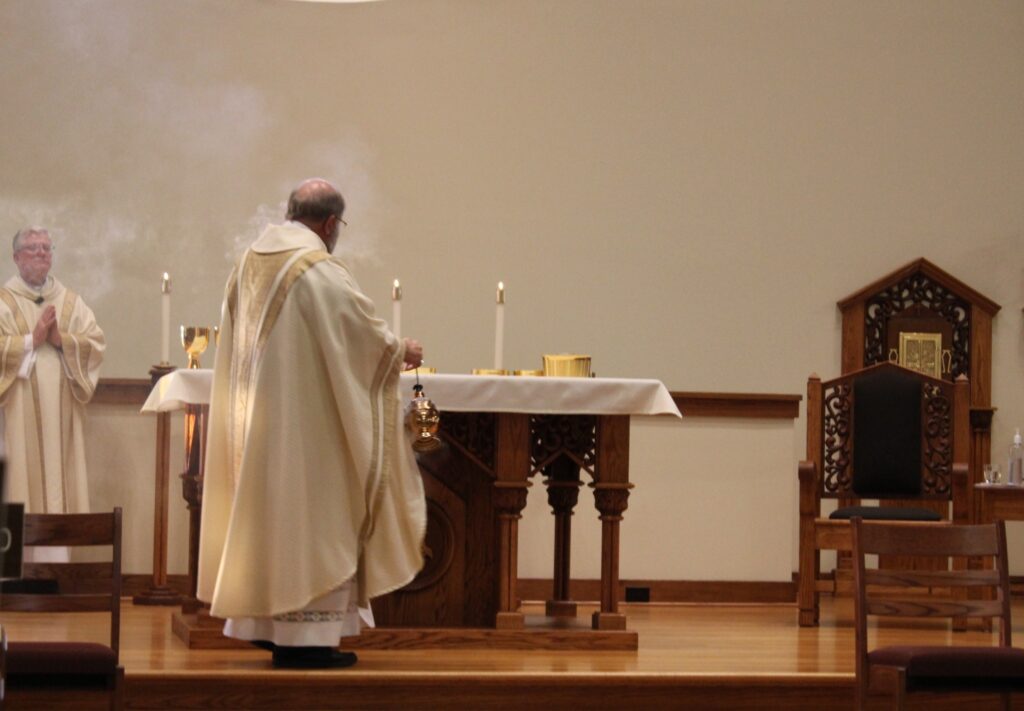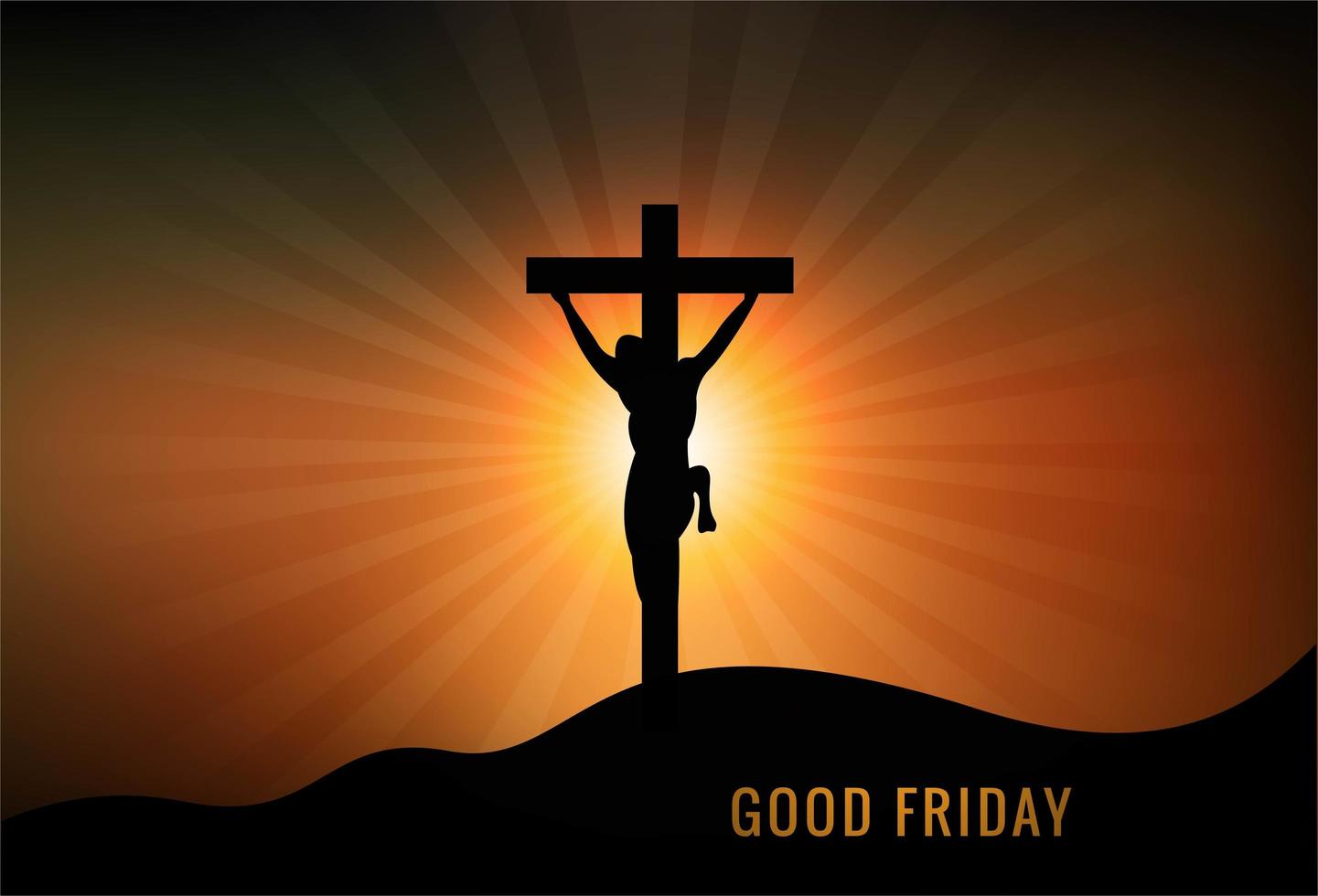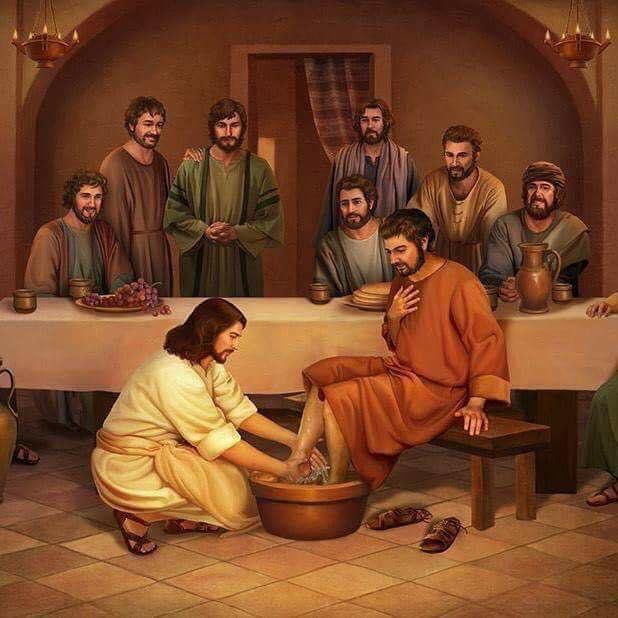The 15th Sunday of Ordinary Time (Weekend of July 12th & 13th)
“This is God”
The command of God is not far from us Moses says. It’s not up in the sky nor across the sea. It is not too mysterious or remote. Rather it is very near. So close in fact that we can taste it like a hot pepper in the sauce or feel it like a racing heart in anticipation of a first kiss. God is that close, and it scares the “bejeebers” out of us. Our reaction?
We try to trap God, maneuver God to just where we want him. Box God up.
A scholar of the law stood up to test Jesus. How presumptuous. Yet don’t we do the same thing? God if I do A-B-C then you have to do D-E-F. Or God if I go through the motions of sacrifice, then you have to make me happy or prosperous or healthy or whatever. If God doesn’t jump through our hoop, God flunks the test. Creating little boxes, we try to mold God into our image. We try to make God safe, familiar.
There were once 3 high school buddies who at a reunion began discussing God. Each argued that God was of their particular occupation. The 1st, a doctor, said, “God has to be a surgeon like me. Genesis says God took a rib from Adam to create Eve, clearly a surgical procedure. God is a surgeon like me.” The second friend, an engineer, said, “No God is an engineer like me. Genesis says that before God made Adam and Eve, he created the heavens and earth. Only a great engineer could do that. God is an engineer like me.” Then after a momentary pause the third friend spoke up. “No gentlemen, God has to be a lawyer like me.” Why said the other two. “Well,” said the lawyer, “Genesis also says that God created the heavens and the earth from chaos. Who do you think made the chaos?”
Everyone likes to think God is in their image. God loves the people I love; hates the people I hate. God must be like me we think, so we cut deals, construct boxes, and administer tests. Want to feel safe? Test God. Box him up. Try to gain control.
But beware. Try to trap God and get trapped. Build a box for God and discover your own prison cell.
Our Gospel scholar of the law was pretty stupid. He tested Jesus with a question and any good Jew could answer. Almost from the time they can walk a Jew learns this prayer: “We shall love the Lord our God with all our heart, all our soul, all our strength, and all our mind.” The part from Leviticus 19, “love your neighbor as yourself” is just about as well known. Our law scholars test was like asking Jesus what is 2 + 2 + 1? Pretty lame as far as tests go. But then aren’t all our human attempts to pull one over on God?
There was once a pastor who loved to play golf. One Sunday morning he got up to discover that the day was perfect for golf. Air was cool, the grass glistened, the gentle breeze whispered “fore.” So, the pastor who had an associate said to himself, “I’ve been harping so hard on everyone coming to church, I know they’re all going to be there. I’ll just take the day. No one will know if I slip out and play.” So, he wrote his associate a note telling him to take all the Masses because he wasn’t feeling well. And when the associate left the rectory to go over to church, the pastor sped off to the golf course.
And he was getting away with it; no one was the wiser except for one little angel in heaven. The Angel saw the pastor playing golf. She said, “Well will you look at that. The pastor is shirking his duty!” The Angel got so mad she went over to God and complained. “Look at that pastor of yours God. He’s skipping out on the holy sacrifice to play golf. You’ve got to do something about it.” “Hmm” said God, “I see what you mean.”
So, the pastor set up his first shot. A beautiful drive. Straight and long. He followed it up with a shot that put the ball right into the cup. Hole after hole he had a miraculous game. Birdies, eagles, holes in one. It was the greatest game of golf ever played. “Look at that” the angel said, “aren’t you going to do something?” “I already did” said the Almighty. “What do you mean?” asked the angel. “He just played the greatest game of golf in the history of the world.” God replied, “Yeah, but who’s he going to tell?”
God will not be trapped. Will not be manipulated. Will not be hoodwinked. Our scholar tried to test Jesus but, in the end, found himself struggling to justify his existence. Who then is my neighbor? Snap! Like a crazy coyote chasing after the roadrunner our scholar is snared. Try as we might God cannot be made to jump through our hoops.
Try to trap God and get trapped. Seek control and lose it. Try to justify ourselves and be lost.
God alone justifies. God alone sets us free from our self-created prisons. God alone is in control.
We hear the parable of the Good Samaritan and immediately we began to speculate on a plethora of questions. Am I like the priest? Am I like the Levite? Am I like the Samaritan? Should I have given money to the vagrant with the cardboard sign at the stoplight today? Have I been as charitable as I could have been? Am I prejudiced? Do I love enough? Do I hate anyone? All good questions. Many fine homilies I’m sure have been delivered exploring them. But what if there’s another way to experience this parable of Jesus?
Saint Paul wrote in Colossians that “Jesus is the image of the invisible God.” When we see Jesus, we see God. Jesus when he tells the parable is not just telling us a story with a catchy punch line. Jesus is revealing who God is. He is showing us that he is God.
Who is the guy in the ditch? We are. Humanity. Jumped by sin, beaten up and robbed by Satan. Fallen humanity is deserted, left for dead. Can empty sacrifices save us? No. The priest walks on by. Can the law pull us up out of it? No. The Levite, the expert in the law, passes on by.
Only the Samaritan, the outcast, the weird guy, can help. Only the Samaritan stoops down to heal us. The despised one takes our pain onto himself as we are lifted and led into the city on his donkey. Only the suffering servant can pay the innkeeper the necessary price to save our lives. And then promise to settle accounts upon his return. Jesus is the Good Samaritan. God is the merciful one who goes out of his way to heal us, forgive us, free us.
In the telling of this parable Jesus describes the very action of God that unfolds before us throughout salvation history. God in God’s mercy reaches down to raise us up. God in God’s mercy looks past our bumbling attempts to justify ourselves and actively works to free us. God in God’s mercy accepts our ridiculous presents of bread and wine and gives us in return the very Son of God, Jesus Christ. God alone can do this, God alone can save us, no one else can set us free.
It can be scary indeed to know that God the Creator of everything, the all-knowing, all-powerful Trinity, loves us so much as to draw close to treat us with such tenderness, such concern. After all, what could we the broken, lost, creatures that we are ever hope to do for God in return for God’s mercy towards us?
Jesus tells us, “Go and do likewise.”




